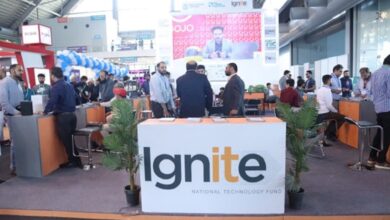Elections 2018-From Dharna to Naya Digital Pakistan

The all-rounder cricket legend turned politician, Imran Khan, and his Pakistan Tehreek-e-Insaf (PTI) claimed a monumental victory in Elections 2018. With his unwavering efforts of 22 years, Khan finally managed to break the status quo, a great moment indeed for all us who wanted to see the change in decades-old political system that has crippled our country for years. Now that PTI is finally in power, everybody is eager to see how it will build a Naya Pakistan.
PTI’s Party manifesto is full of ambitious plans and promises that have the potential to reform the socio-economic conditions of Pakistan. Being part of the ICT industry, we are more interested in how PTI’s government will reshape the ICT industry. During its government in KPK, PTI did an outstanding work at technology front. KPITB progressed by leaps and bounds in the last five years under the supervision of PTI government.
During its government in KPK, PTI did an outstanding work at technology front
KPITB envisioned creating more jobs; better services and improved governance through ICT and accelerated digitization in all sectors. KPITB focused on four areas of digitization:
- Digital Access
- Digital Governance
- Digital Skills
- Digital Economy
Under these four areas, a number of projects were initiated that improved education, health, entrepreneurship, agriculture and law and order situation in the province. A number of IT parks were also built in Peshawar and Abbottabad. The overall situation of IT improved substantially under PTI’s government in KPK. Now that PTI is the ruling party of the country, all eyes are on it to see what it will do to solve the impending crisis in Pakistan.
PTI is considered as the party representing youth therefore, Digital Pakistan has been the top priority of PTI right from the start. Prior to election 2018, PTI also launched its first major digital policy aimed at transforming Pakistan into a knowledge economy. The policy encompasses three main objectives; the creation of more jobs for youth, enhance the country’s IT exports and promote E-governance to control corruption. The long term goals of the policy cover everything from education, infrastructure, financing to global market access. According to Asad Umar, the leader of PTI who presented the Digital Policy, around 115,000 youth was working in IT industry, if efforts are made in the right direction this number could be further enhanced. PTI aims to award special scholarships to IT students. He promised that once PTI is on power, the country’s IT related exports would be enhanced from the current $2 billion to $10 billion under the digital policy. Similar ideas were outlined in its party manifesto.
The Digital Policy encompasses three main objectives; creation of more jobs for youth, enhance the country’s IT exports and promote E-governance to control corruption
Since IT is at the core of all socio-economic developments, PTI has planned an exclusive overhaul of the IT sector of the country. Besides that, there are also the number of other initiatives as well that PTI plans to introduce that will directly or indirectly impact the digital journey of the country.
Turnaround IT sector to build a knowledge economy
Making Pakistan a knowledge based economy through digitation is one of the top primacies of PTI. Boosting the IT exports with a cross-cutting strategy driven from the centre, improved infrastructure, uplifting human capital, supportive tax policies, incentivizing innovation and encouraging entrepreneurship are included in the plan of action to turn around the IT sector. To make Pakistan a competitive market in the international arena, PTI aims to take the following measures:
- Establishment of a Knowledge Economy Authority with cross-sectional powers across government departments to end the fragmented approach
- Ensure a forward looking regulatory and tax regime to make room for new business models and innovation.
- Adoption of a central strategic direction towards digitization
- Digital Transformation Initiative Programme for digital infrastructure
- Citizen services and other e-government programs
- Creation and implementation of the National Digital Policy to ensure privacy, security, standardization, and data sharing across all stakeholders
- Creation and implementation of a regulatory and legal framework to enable Open Government Data and platform for shared services.
Making Pakistan a knowledge-based economy through digitation is one of the top primacies of PTI
- Establishment of a National Outreach Scholarship Programme to identify best minds and fully fund their placement in the top institutions
- Increased access to international markets with a favorable visa regime and improved business development through our embassies to boost exports.
Institutionalize E-Governance practices in public administration
PTI plans to digitize all government working process in order to fix inefficient data collection systems, record keeping, intra-coordination between various departments, black economy, tax evasion, and bureaucratic hurdles in solving public issues in federal and provincial levels.
Make Pakistan business-friendly
PTI promises an enabling and supportive environment to businesses that show interest in Pakistani market.
If PTI successfully transforms its government into the digital platform it will make public institutions more inclusive, effective and transparent
The revival of the manufacturing industry and growth of SMEs will also be the top priority of PTI government. The new government plans to establish SME incubators across Pakistan that will Improve access to funding, introduce advanced technology to facilitate innovation, provide better transport & warehousing facilities, partners for joint ventures, cost-sharing solutions, and technical assistance on tax, legal and regulatory compliance. Besides that, the manifesto also outlines various incentives for SME businesses as well. A ten-year incentive plan for rapid growth of the SME sector will include tax holiday on new investments for the first 3 years and 50% tax rate in next 7 years, and a withdrawal of minimum tax on turnover for the first 3 years and then tax at half the rate for the following 2 years. Whereas, export-oriented sectors and allied industries will be 100% zero rated and install a mechanism for faster refunds on income and sales tax.
Challenges
Digitizing public services is an urgent need for governments around the world today. It can not only help businesses to flourish but it also increases citizen engagement and economic growth. If PTI successfully transforms its government in to digital platform it will make public institutions more inclusive, effective and transparent. But digital development is not a quick and easy task, at every stage of this development governments have to overcome many barriers.
Despite being a booming IT nation, the digital divide persists in Pakistan
This not only includes technical challenges alone rather the cultural challenges also hinder collaboration within and between government organizations at local and national levels. In order to take full benefits of digitization, the government has to take care of substantial regional disparities. Despite being a booming IT nation, the digital divide persists in Pakistan. Migrating to digital government before all citizens have the basic awareness and Internet access could potentially widen the gap, rather than closing it. Therefore, a key challenge that PTI government will have to deal with is creating awareness and educating people about the benefits of digitalization which is a huge task in itself.
Rebuilding PTA and FAB on new and advanced trends is highly important in order to make Pakistan a digital nation
Another great challenge that PTI has to face in making Pakistan a digital nation is a financial issue. Pakistan’s external debt has increased to 91,761 USD Million in the first quarter of 2018. Government budgets are already chronically constrained and in such crucial financial conditions sparing a large portion of budget for digital projects would be quite difficult for the PTI government. It will have to come up with a very effective financial model especially for large scale and more sophisticated services.
Protection of personal data and privacy of citizens is also crucial for digital government projects. PTI government will have to work on two aspects of data protection– privacy legislation and deploying the most advanced security technologies. Besides these two major aspects talent acquisition will also pose a serious task. You cannot design, implement or operate any digital project if you don’t have a skilled workforce. PTI will need to bring young blood in the IT Ministries and Pakistan Telecom Authority (PTA) in order to enable innovation and creativity. Unfortunately, the people and processes in the Ministries and Regulatory bodies are not well-versed with the new trends in IT & Telecom nor they are motivated enough, therefore; they they are unable to understand the importance and push for digitization. PTI government should not only give scholarships to students, but it should also train its senior officials, public sector workers, and private organizations. Government workers need to be trained and retrained to adapt to the changing environment.
The developments in IT are not possible if the telecom sector is not given the due importance as broadband is at the core of all technology revolution
Collaboration with ICT service providers and universities will be the key in this regard. Such steps will significantly boost the digital literacy and pave ways for further growth.
In order to improve the ICT industry, PTI plans to introduce a rounded approach which actually is the need of the time. You can’t change only few aspects of the industry and then except grand result. In order to achieve all of its targets, PTI should go for a complete transformation of PTA and Frequency Allocation Board. The PTA has been left disorganized by the previous Government for quite some time now and is in urgent need of a complete authority to take critical development decisions. The complexity and fast pace technology changes have made the role of regulator even more important.
Previous governments took years to introduce a single policy, if PTI government also took the same liberty, it won’t be able to achieve its goals
Policy makers are forced to respond with better and improved regulatory frameworks in order to foster both innovation and fairness. Therefore, rebuilding PTA and FAB on new and advanced trends is highly important in order to make Pakistan a digital nation. Selecting the right Minister for IT & Telecom and his team is of crucial importance because they are the ones who are going to set the Telecom & IT directions for the country that could turn the wheel of our economy. Unfortunately, the newly elected Minister of IT & Telecom, Khalid Maqbool Siddique does not have an IT back ground for which PTI is facing much criticism. We will have to wait to see how he is going to handle this criticism and his new position.
The developments in IT are not possible if the telecom sector is not given the due importance as broadband is at the core of technology revolution. PTI government will have to show full support to the telecom industry. Providing a favorable environment to existing Telecom & IT players will send the right message and attract new players that will accelerate the adoption of technology in the country. The regulatory bodies have to make available new spectrum at an affordable price rather than sitting on this sacred resource without any initiative of moving forward with the digitization agenda.
PTI has vowed to bring a holistic digital policy to solve all the issues related to the ICT industry, but developing a progressive policy is not an easy task, it requires a lot of research and commitment. Previous governments took years to introduce a single policy, if PTI government also took the same liberty, it won’t be able to achieve its goals. PTI Government needs to review the current laws and regulations to clear the way for the use of new technologies in both the public and private sectors.
It has been an amazing journey for PTI, from dharna on roads to the ruling party in the Parliament
Industries around the world are preparing for 5G even Pakistan has high hopes of moving to the next generation of technology by 2020 but in order to do so, we need to take the right decision at the right time and for that, we need a futuristic approach. Political commitment can play a key part here. Our industry needs a long-term vision as the ICT investments made today will benefit in future. PTI government will only be able to achieve its goals when it sets clear and investment friendly policies, make investment in ICT infrastructure, adopt open platforms and secure participation from both public and private sector otherwise, its plan and ambitions will not see the light of the day.
PTI has a great chance to fulfill its promises of stronger, corruption-free and progressive nation through digital revolution
Politics in Pakistan has been a roller coaster ride, a lot has happened over the last decade, new parties were formed and political affiliations were changed. In all of this, Pakistan Tehreek-e-Insaaf (PTI) has been the most active political party over the years. It brought many new trends in Pakistani politics, dharna, use of social media and technology being few of them. We covered these trends in one of our articles of Phoneworld Magazine as well. It has been an amazing journey for PTI, from dharna on roads to the ruling party in the Parliament. Looking at the future, how PTI will move forward is something everyone is looking forward to. 21st century belongs to the world of ICT; it is the century of knowledge, technology advancements and sustainable development. PTI has a great chance to fulfill its promises of stronger, corruption-free and progressive nation through digital revolution.
PTA Taxes Portal
Find PTA Taxes on All Phones on a Single Page using the PhoneWorld PTA Taxes Portal
Explore NowFollow us on Google News!





